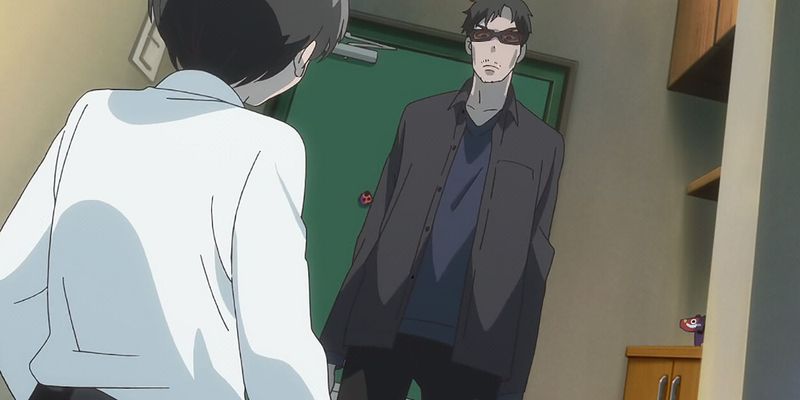13 Subtle Parenting Signals Every ’70s Kid Knew Meant Trouble

Growing up in the 1970s came with its own unique parenting language that didn’t require words. Parents had an arsenal of subtle signals that communicated loud and clear when you’d crossed a line.
These unspoken warnings were universal across neighborhoods, giving kids just enough time to straighten up before consequences arrived.
Remember these signals that sent shivers down every bell-bottomed kid’s spine?
1. The Silent Glare Over Eyeglasses

Mom’s glasses-lowering maneuver communicated volumes without a single word. That penetrating stare over the rims of her oversized frames could stop mischief mid-action from across a crowded room.
The technique was especially effective during church services or at relatives’ homes. One strategic glance and suddenly you remembered your manners, sitting up straighter than a soldier on inspection day.
2. The Full Name Call-Out

Nothing froze your blood faster than hearing all three of your names bellowed through the house. The progression from nickname to full formal title meant your trouble meter had just hit critical levels.
One minute you’re “Buddy” or “Sweetie,” the next you’re “ROBERT JAMES WILSON!” That transformation meant Mom or Dad had discovered something – probably the baseball-sized hole in the living room wall you’d covered with a poster.
3. The Ominous Finger Point

When that index finger extended in your direction, you knew judgment day had arrived. The finger point was the silent precursor to a verbal storm that would follow if you didn’t shape up immediately.
Often accompanied by a head tilt and raised eyebrow, this gesture worked across vast distances – even in public places.
Moms could accurately target specific children in a group of dozens, and that child instantly knew they’d been made.
4. The Wooden Spoon Tap

That rhythmic tap-tap-tap of wooden spoon against palm wasn’t Mom testing a cooking utensil – it was the universal sound of impending consequences. Kitchen implements doubling as disciplinary tools kept kids on high alert.
The wooden spoon rarely made contact, but its psychological power was undeniable. Just the sight of Mom reaching for the utensil drawer during an argument could instantly improve behavior and settle disputes between siblings faster than any referee.
5. The Car Pull-Over Threat

“Don’t make me pull this car over!” – the ultimate road trip terror. This nuclear option transformed backseat battlefield into monastery-level silence within seconds.
The threat’s power came from its legendary status – everyone knew a kid whose dad actually did pull over once. What happened next varied in playground retellings, but all versions ended badly for the troublemakers.
6. The Arm Grab in Public

That sudden firm grip meant you’d pushed too far in public. This stealth correction came with a smile for onlookers but delivered a clear message to you alone.
The pressure wasn’t painful but communicated unmistakable authority. It often arrived with whispered warnings through clenched teeth: “We’ll discuss this at home.”
Those five words guaranteed a future reckoning worse than any immediate punishment.
7. The Head Tilt with Raised Eyebrow

This facial combo packed more questioning power than an FBI interrogation. When Mom’s head tilted precisely 15 degrees while one eyebrow arched skyward, you knew your story had major holes.
The gesture silently communicated “I wasn’t born yesterday” and “Try again with the truth this time.” No child’s fabrication survived this expression.
The longer the silence stretched while maintaining this look, the more your made-up excuse crumbled under pressure.
8. The Sudden Room Entrance

The abrupt appearance of a parent in your doorway without knocking meant your privacy privileges had been temporarily revoked. Something triggered parental radar, and now they were conducting a surprise inspection.
This maneuver often caught kids mid-mischief – reading comics with flashlights after bedtime or playing with forbidden items.
The strategic timing seemed almost supernatural, making kids wonder if parents had hidden cameras or some sixth sense for detecting rule-breaking.
9. The Dinner Table Staredown

Refusing vegetables could trigger the infamous dinner table standoff. “You’ll sit there until it’s gone” transformed the kitchen into a battle of wills that could theoretically last forever.
Parents somehow maintained superhuman patience during these confrontations. The cold Brussels sprouts became psychological warfare as everyone else finished dessert while you contemplated your life choices.
Many 70s kids learned to swallow without tasting just to escape this particular punishment.
10. The Public Behavior Whisper

“Don’t make a scene” – these four words delivered in that special whispered-yet-somehow-louder-than-yelling tone meant social destruction was imminent. The public behavior whisper happened inches from your ear but felt like a megaphone announcement.
This warning came with clenched teeth and often a painful shoulder squeeze for emphasis. The threat wasn’t specific but implied consequences so dire that immediate behavior correction was the only rational response.
11. The Dreaded “Wait Till Your Father Gets Home”

This phrase activated an exquisite form of psychological torture – delayed consequences. The anticipation of doom created hours of stomach-churning anxiety as you watched the clock tick toward dad’s arrival.
The waiting was often worse than the actual punishment. Kids would track dad’s typical arrival patterns, listening for the car in the driveway with the heightened senses of prey animals.
Some clever children attempted pre-emptive confession strategies to minimize the inevitable fallout.
12. The Ominous “We’ll See”

Parents deployed this non-committal response when they wanted to end your begging without an actual promise. “We’ll see” existed in parenting limbo – neither yes nor no, but somehow always meaning no.
The genius was in its ambiguity. It gave parents time to consider while giving kids false hope. Children eventually decoded this phrase, understanding that the more enthusiastic the “we’ll see,” the less likely the desired outcome would materialize.
13. The First Warning Look

Before any words were spoken, there was The Look – that initial visual warning shot across the bow of misbehavior. Parents could deploy this facial expression with sniper-like precision across crowded rooms.
The Look transcended language, working equally well in church, restaurants, or relatives’ homes. It communicated boundaries more effectively than any lecture.
Veteran parents could convey specific instructions (“stop kicking the table,” “don’t touch that vase”) through subtle eyebrow movements alone.
